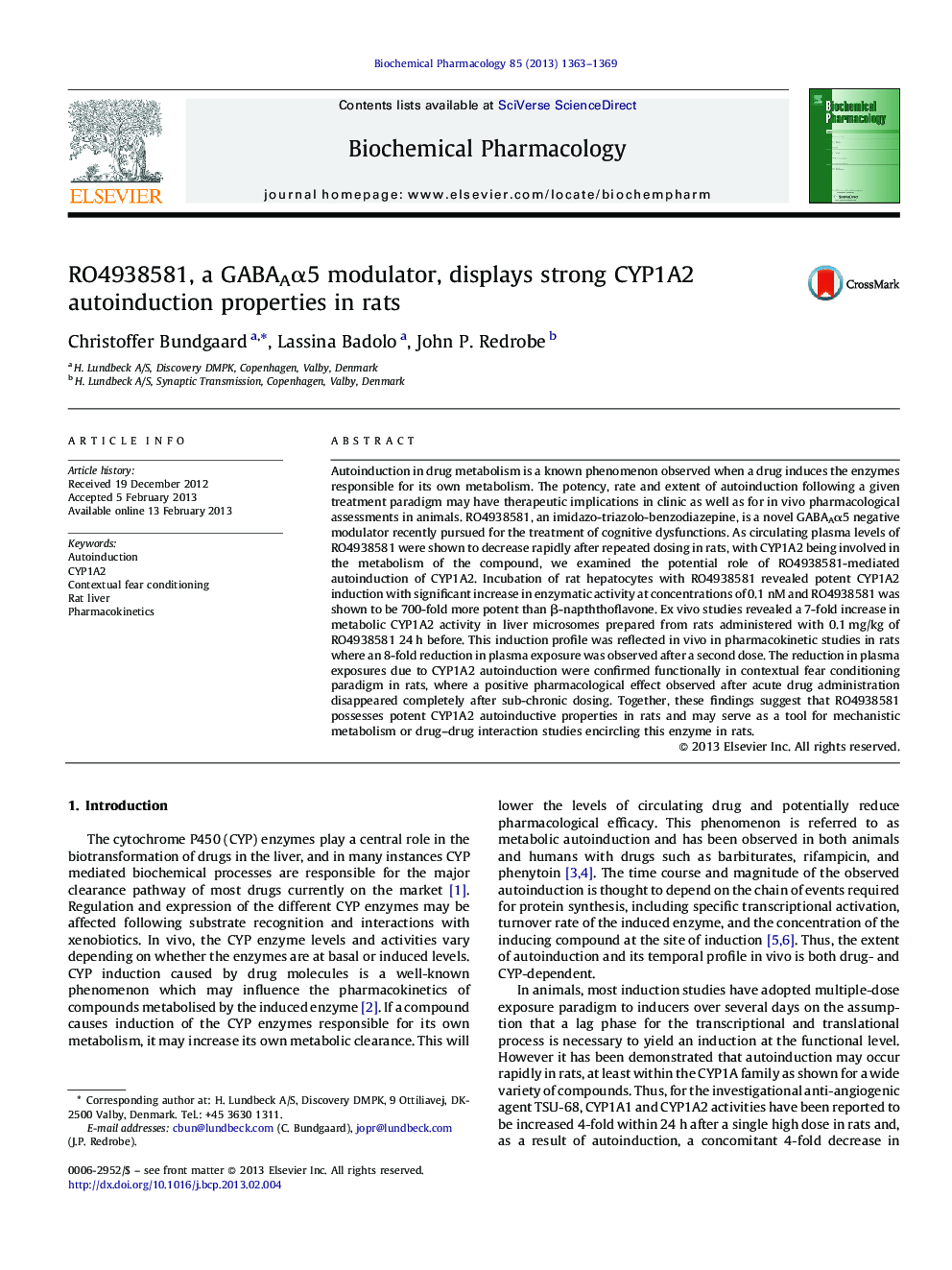| Article ID | Journal | Published Year | Pages | File Type |
|---|---|---|---|---|
| 5823507 | Biochemical Pharmacology | 2013 | 7 Pages |
Autoinduction in drug metabolism is a known phenomenon observed when a drug induces the enzymes responsible for its own metabolism. The potency, rate and extent of autoinduction following a given treatment paradigm may have therapeutic implications in clinic as well as for in vivo pharmacological assessments in animals. RO4938581, an imidazo-triazolo-benzodiazepine, is a novel GABAAα5 negative modulator recently pursued for the treatment of cognitive dysfunctions. As circulating plasma levels of RO4938581 were shown to decrease rapidly after repeated dosing in rats, with CYP1A2 being involved in the metabolism of the compound, we examined the potential role of RO4938581-mediated autoinduction of CYP1A2. Incubation of rat hepatocytes with RO4938581 revealed potent CYP1A2 induction with significant increase in enzymatic activity at concentrations of 0.1 nM and RO4938581 was shown to be 700-fold more potent than β-napththoflavone. Ex vivo studies revealed a 7-fold increase in metabolic CYP1A2 activity in liver microsomes prepared from rats administered with 0.1 mg/kg of RO4938581 24 h before. This induction profile was reflected in vivo in pharmacokinetic studies in rats where an 8-fold reduction in plasma exposure was observed after a second dose. The reduction in plasma exposures due to CYP1A2 autoinduction were confirmed functionally in contextual fear conditioning paradigm in rats, where a positive pharmacological effect observed after acute drug administration disappeared completely after sub-chronic dosing. Together, these findings suggest that RO4938581 possesses potent CYP1A2 autoinductive properties in rats and may serve as a tool for mechanistic metabolism or drug-drug interaction studies encircling this enzyme in rats.
Graphical abstractDownload full-size image
